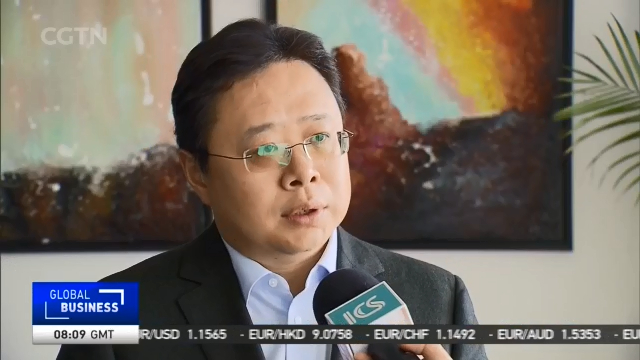
16:58, 29-May-2018
China Corporate Defaults: Dozens of private companies unable to repay debts
02:45

Dozens of companies here have either failed to issue bonds or had to delay paying back bonded debt since the beginning of the year. Most firms with debt problems are listed private companies, and what's created their headache is the increasing difficulty of getting financing. Our Chen Tong has more.
Data provider Wind lists 20 company bonds worth 17.6 billion yuan which have suffered delayed payments since the beginning of the year, and the number has been rising during the past month. Over half of these bonds were issued by private companies including Sichuan Coal Industry Group, Dalian Machine Tools Group, and Bright Oceans Corporation. Since regulators launched stricter asset management regulations, commercial banks have started to reduce the amount of loans they issue to private companies, and that creates problems for companies looking for finance.
SHAO YU, CHIEF ECONOMIST ORIENT SECURITIES "The asset management regulations put tough scrutiny on shadow banking, and off-balance-sheet loan services. So commercial banks have tightened up on their loans to private companies. In addition, although the monetary policy is neutral, actually liquidity is still a bit tight. So many companies have been seeing expanding liabilities in recent months. The pressure is even larger for private companies, because state-owned companies have an easier time getting financial support.
The increasingly frequent delays in paying back debts seems severe, but the amount is actually not that high. China's total value of bonds outstanding is now 50 trillion yuan, and so the delayed repayments of only 18 billion yuan are actually only a small part of the whole market. In addition, most of the unpaid debts are in the hands of institutional investors who themselves have strong financial resources. Experts conclude that this round of delayed repayments, while awkward, is unlikely to have a significant impact on the financial system.
CAI JUNYI, CHIEF ANALYST SHANGHAI SECURITIES "In the process of deleveraging, the regulator has given clear instructions -- prevent financial risks. So popping the debt bubbles is a gradual process. When debts are not paid, the regulator has to avoid creating fears that would affect the process of deleveraging. The process might create some pain for some companies, but it's a process that has to be gone through for the long-term strength of the economy."
The overall performance of China's listed companies has been quite steady, which experts believe still ensures a positive environment for the debt market. In 2017, listed companies in Shanghai and Shenzhen recorded year-on-year net profit total increases of 19 percent.

SITEMAP
Copyright © 2018 CGTN. Beijing ICP prepared NO.16065310-3
Copyright © 2018 CGTN. Beijing ICP prepared NO.16065310-3